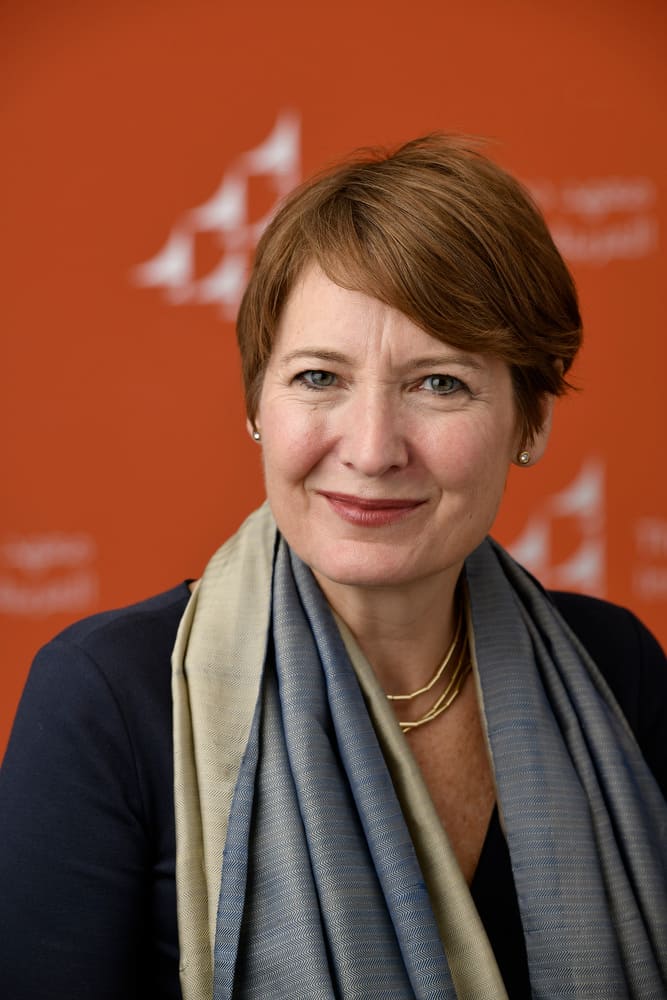Gulf States’ Engagement with Sport: Domestic and Global Drivers
Over the past two decades, the Gulf States have become highly visible as investors, owners, sponsors, hosts, and participants in the governance of sports, while also aligning the domestic development of sports to projects of economic reform, diversification, and public wellbeing. The speed and scale of engagement with sport, coupled with the organization of mega-events such as the 2022 FIFA World Cup in Qatar and Saudi investment in golf and ...
Abstract
Over the past two decades, the Gulf States have become highly visible as investors, owners, sponsors, hosts, and participants in the governance of sports, while also aligning the domestic development of sports to projects of economic reform, diversification, and public wellbeing. The speed and scale of engagement with sport, coupled with the organization of mega-events such as the 2022 FIFA World Cup in Qatar and Saudi investment in golf and soccer, have generated intense and often critical international interest in the Gulf States with pejorative labels such as ‘sports-washing’ becoming prevalent. Other approaches have focused on ‘soft power’ and ‘nation branding’ as explanatory tools that seek to fit the Gulf states into broader conceptual frameworks. The purpose of this workshop is to re-center the study of sports and the Gulf states and to identify and comparatively assess countrydistinctive and sport-specific approaches, commonalities, and patterns underlying the use of sports as a tool of domestic and/or foreign policy.
Description and Rationale
Context
Sports and the Gulf have become the focus of global scrutiny with the hosting of the 2022 FIFA men’s World Cup in Qatar followed swiftly by the move of Cristiano Ronaldo and other international soccer stars to the Saudi Pro League in 2023. The emergence of the Saudifunded LIV Golf and significant investment from the Gulf in eSports and motor racing, along with a steady pipeline of ‘sports mega-events’ (SMEs) being allocated to the region, have generated additional and often critical and negative interest. The rise of the Gulf states has been viewed as a threat to the established order but their emergence as a center of gravity is a process that has been at least two decades in the making, even if the pace and scale of development have accelerated at domestic and international levels, and looks set to be a major feature for years to come. The ‘rise’ of the Gulf states is also consistent with broader shifts in the geopolitical and economic balance of power in the architecture and governance of sports in the twenty-first century. Against this backdrop, and in view of the rapidity of developments that further enmesh the Gulf states as pivotal players in sports, there is a need to map the existing landscape and identify the drivers and objectives of sports policy. Sometimes these drivers are economic, as evidenced by the prominent place of sports in economic diversification plans. Yet there are also social objectives to sports policies such as the integration of women into public life, seeking improvement in the health of Gulf citizens, and improving quality of life through more varied forms of leisure and entertainment. Today the international objectives of Gulf states in sports are moving well beyond being passive investors. Global sports are enmeshed in economic diversification plans due to their being effective vehicles for media advertisement and branding, at times through club ownership, and at times through sponsorship arrangements. Yet in some cases, Gulf states have further economic objectives. In global football, Gulf-owned clubs have played a part in reworking league rules, and in adapting new forms of international governance. In its most advanced structures, such as the PGA-LIV Golf merger, state investment is being used to reconfigure the sport - and the sporting economy - itself. These actions produce both cooperation and resistance from different global actors and institutions, generating new influence networks as well as oppositional coalitions.
Focus/objectives
The objective of this workshop is to re-center the study of sports in the Gulf, by examining the engagement of sports from the perspective of the Gulf states themselves. This requires thinking about their engagement in sport in terms of policy objectives, whether on the national, regional, or international level, and to analyze their outcomes, in terms of policy, economy, and politics. This may be approached by country-distinctive or sport-specific approaches, which analyze the commonalities and patterns underlying the use of sports as a tool of domestic and/or foreign policy, As one surveys the existing literature and commentary on sports and the Gulf states, there is an inconsistency in country-specific approaches and a Qatar-heavy focus as a result of the decade-long preparations for the 2022 World Cup. A new research agenda is needed to broaden the analysis to the other Gulf States and to learn more systematically from their various approaches and outcomes. This includes the newfound centrality of Saudi Arabia, as the Kingdom rapidly expands the development of its existing sporting infrastructure, ambitiously pursues the hosting of international events, and deepens its investment in sporting ventures and branding abroad. The longer involvement of Bahrain and the UAE in global sports, hosting, and sponsorships, provides useful country and time-based comparisons, as do earlier entries into sports by Kuwait, and newer ambitions by Oman. The role of sport in national development plans and economic diversification initiatives has also become more explicit including specific economic and policy targets. This expands the data and scope of its study, especially as country plans and visions are realized. In addition to these country and time-based historical comparisons, it is the aim of this workshop to analyze the ways the Gulf states are engaging with sports across differing points of governance: the domestic, regional, and international/global. These levels of analysis also pose useful means of comparison, and for assessing the synergies - or antagonisms - generated among them. The entry of more Gulf states into sporting ventures has likewise increased the scope for regional collaboration, but also competition amongst Gulf states and sports entities. Identifying the conditions behind these opposing dynamics is yet another analytic task. The ambitious entry of Gulf states into global sports as hosts, owners, sponsors, and participants has created opportunities for state-to-state cooperation, corporate sponsorships, and media rights. This opens up a host of questions germane to international relations (soft power, state branding) as well as international political economy.
Papers focus/topics
The workshop directors welcome paper proposals from a range of thematic, theoretical, and empirical perspectives and academic disciplines. Papers may focus on the analysis of individual countries and sports or take a comparative approach that examines clusters of different countries (including comparisons with states beyond the region) or works across a range of sporting approaches. Rather than provide a snapshot of the landscape at any given point in time, the workshop aims to identify and examine patterns structuring the nature, pace, and scale of engagement, link developments to economic and political processes, and examine sports within the context of regional and international strategies. Topics of interest include:
• The politics and economics of hosting mega-events in the Gulf
• The intersection of sports and tourism
• The development of sports in pursuit of other social objectives (women's inclusion; public health)
• The politics and political economy of domestic sports leagues
• The evolution of a particular sport/sports within a Gulf state/Gulf states
• Regional cooperation and/or competition in sport
• Sports diplomacy
• The politics and economics of corporate/state sponsorship, licensing, media rights
• Gulf states in international sports governance
Paper proposals should fit as closely as possible with this workshop description, notably section 4, and the publication plans (section 7).
Paper structure, referencing, and format
Authors should adhere to the GRM Paper Guidelines.
Participants who do not submit a paper by the 31 May 2024 deadline or whose submitted paper does not meet the requirements will be disinvited by GRCC.
Publication plans
Contributions to the workshop will be selected for either an edited volume or a special issue of a journal depending on the number of appropriate submissions (10-12 for an edited volume or 6-8 for a special issue) and discussion among participants during the GRM. Potential publishers for an edited volume include Routledge, Hurst/Oxford University Press, or the Gulf Studies specific series at Springer/Palgrave co-directed by Abdullah Baabood and Steven Wright. Examples of journals include the Journal of Arabian Studies, the Journal of Gulf Studies, and sport-specific journals such as the International Journal of Sport Policy and Politics or the International Review for the Sociology of Sport.
Papers that may not be publishable in the volume will still be reviewed by the directors and considered for individual publication in either a peer-reviewed journal or as a GRC paper. Directors will make reasonable efforts to ensure that all accepted papers are published in one of these forms.
References
Al-Arian, Abdullah, 2022. Football in the Middle East: State, Society, and the Beautiful Game. London: Hurst & Co.
Boykoff, Jules, 2022. ‘Toward a Theory of Sportwashing: Mega-Events, Soft Power, and Political Conflict,’ Sociology of Sport Journal, 39: 342-351.
Chadwick, Simon, Paul Widdop, and Michael Goldman, 2023. The Geopolitical Economy of Sport: Power, Politics, Money, and the State. Abingdon: Routledge.
Ettinger, Aaron, 2023. ‘Saudi Arabia, Sports Diplomacy and Authoritarian Capitalism in World Politics,’ International Journal of Sport Policy and Politics, 15(3): 531-547.
Lysa, Charlotte, 2020. ‘Fighting for the Right to Play: Women’s Football and Regime-Loyal Resistance in Saudi Arabia,’ Third World Quarterly, 41(5): 842-859.
Sorek, Tamir and Danyel Reiche, 2019. Sport, Politics and Society in the Middle East. London: Hurst & Co.
Tuastad, Dag, 2014. ‘From Football Riot to Revolution: The Political Role of Football in the Arab World,’ Soccer & Society, 15(3): 376-388.
Yom, Sean, 2023. 'The Long Game: Saudi Arabia and Professional Golf,' Foreign Policy Research Institute.
Directors’ bio notes
Kristin Smith Diwan is a senior resident scholar at the Arab Gulf States Institute in Washington. Her current projects concern generational change, nationalism, and the evolution of Islamism in the countries of the Gulf Cooperation Council. Her analysis of Gulf affairs has appeared in many publications, among them Foreign Affairs, Financial Times, and The Washington Post. Diwan was previously an assistant professor at the American University School of International Service and has held visiting scholar positions at George Washington University and Georgetown University. From 2013-14 she served as a visiting senior fellow at the Atlantic Council where she published on youth movements and participated in the Strategic Dialogue for a New US-Gulf Partnership. Diwan received her Ph.D. from Harvard University and holds an MA from the Johns Hopkins School of Advanced International Studies.
Kristian Coates Ulrichsen, Ph.D., is a fellow for the Middle East at the Baker Institute. His research examines the changing position of Persian Gulf states in the global order, as well as the emergence of longer-term, nonmilitary challenges to regional security. Previously, he worked as Senior Gulf Analyst at the Gulf Center for Strategic Studies and as co-director of the Kuwait Program on Development, Governance and Globalization in the Gulf States at the London School of Economics. Coates Ulrichsen has published extensively on the Gulf. His books include “The Gulf States in International Political Economy” (Palgrave Macmillan, 2015), “The United Arab Emirates: Power, Politics, and Policymaking” (Routledge, 2016), and “Qatar and the Gulf Crisis” (Oxford University Press, 2020). Coates Ulrichsen’s articles have appeared in numerous academic journals, including Global Policy and the Journal of Arabian Studies, and he consults regularly on Gulf issues for government and private sector agencies around the world. Coates Ulrichsen holds a doctorate in history from the University of Cambridge.








